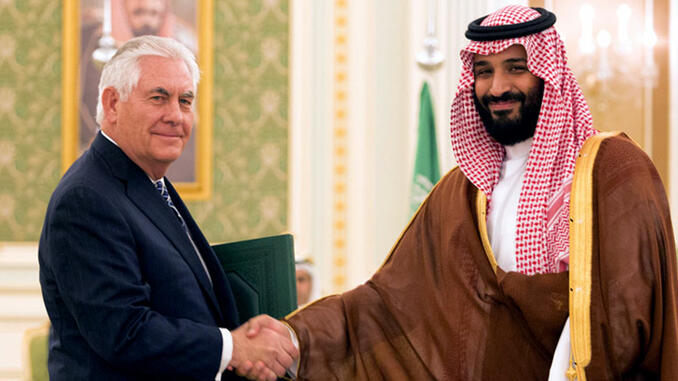
This past June the 81-year-old Saudi King Salman announced his son Mohammed bin Salman, 31, the new Crown Prince of Saudi Arabia making him next in line to the throne. Observers have been speculating for a while that the move was in the making, but the timing of the announcement seemed to catch everyone by surprise.
Not much is known about Mohammed bin Salman inner circle of advisors, but what is known is he has been rising in prominence by being put in charge of key government roles. His portfolio includes Special Adviser to the King, Minister of Defense, Second Deputy Prime Minister, and Chairman of the Council of Economic and Development Affairs. How he has handled those roles indicate what kind of ruler he may become and the kind of relationship he would foster with the United States.
Last June Mohammed bin Salman launched a reform initiative called Vision2030. The plan calls for creating a more diverse economy that is less dependent on oil revenue, cultivating a non-Hajj-based tourism industry, all while creating higher workforce participation among domestic workers. Also Vision2030 calls for the partial privatization of Saudi Aramco, the largest oil company in the world. Five percent of Aramco is scheduled to be privatized on Saudi Arabia’s stock exchange, Tadawul in 2018. The IPO could list for as much as $2 trillion, though that number is disputed. Vision2030 is an extremely ambitious plan.
All this potential change is music to many ears and is even necessary, however, it requires radical change in the traditional political and business policies of the country. Those changes run the risk of upsetting domestic peace and destabilizing a regime in an area of the world that stability is paramount to the interests of the U.S. among many other nations. To achieve Vision2030, it will require immense leadership and deft skill—characteristics that remain to be seen in the future king.
As Minister of Defense Mohammed bin Salman lead Saudi Arabia to war with Yemen. At the time he was publicly shown as a bold military leader, but as the war settled into a morass the Prince’s role has been downplayed. The war in Yemen has cost the Kingdom billions of dollars at a time when oil prices are drastically down, further straining the country’s coffers.
Also as Minister of Defense he was a central figure in the region’s multilateral decision to isolate Qatar—a move that is causing headaches in Washington in regards to the fight against ISIS and rolling back Iranian influence. Qatar is a strategic U.S. ally and home to America’s key military forward operating base in the region which is critical for its role in the fight against ISIS.
The Trump administration has its work cut out for it in cultivating Mohammed bin Salman and how he approaches the region. The future king seems very impulsive and one hopes he grows into the role. He is, after all, very young and his rise to thrown represents a large generation shift in the Saudi ruling family.
